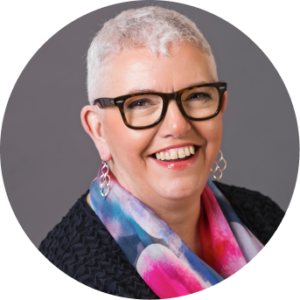Podcast: Play in new window | Download
Welcome to the Recruitment, Marketing and Sales Podcast. I’m Sharon Newey, and today, I’m thrilled to bring you an insightful conversation with Natalie Wells, a super successful finance recruiter who has successfully transitioned from corporate life to running her own independent recruitment business.
In this episode, Natalie shares her unique journey from her beginnings in actuarial science to becoming a sought-after finance recruiter. Her path is not the typical one, and her success is a testament to the possibilities in our industry.
We delve into the dramatic changes she’s witnessed in the industry over the past 25 years and explore her people-centric approach to recruitment, which has led to remarkably long-lasting placements.
Whether you’re a seasoned recruiter considering going solo or a business owner looking to improve your hiring process, Natalie’s experiences and strategies offer valuable lessons.
She provides a candid look at the challenges and rewards of independent recruitment and shares her vision for the future of our industry.
Get ready for an engaging discussion filled with practical advice and inspiring insights. Natalie’s experiences and strategies offer valuable lessons that can enlighten your understanding of the recruitment industry and inspire your own professional journey.
Where it All Started
I started my career in finance after studying maths and statistics. Because career advice was limited back then, I followed the traditional path into actuarial science. After a few years in a global insurer, I realised I wanted to work more closely with people.
Unlike many who fall into recruitment, I took a considered approach. I engaged a careers consultant, and we concluded that financial recruitment or training would suit me best.
I joined a large corporate recruiter, benefiting from their excellent training. Over the next 25 years, I witnessed massive changes in the industry. When I started, we didn’t have mobile phones or email. Business was done via landlines, and shortlists were printed, posted, or faxed. The recruiting process wasn’t necessarily longer, but there was less white noise to cut through.
Adapting To Industry Changes
LinkedIn’s arrival disrupted our industry, making extensive databases available to anyone. This shift and my growing focus on working with business owners of growing SMEs led me to consider going independent. I found myself increasingly in situations where I’d qualify a client’s needs, only to realise the role fell outside my remit in the corporate structure.
I decided to simplify my approach and focus on the client, their business, and how to help them grow. I wanted to invest time in nurturing individuals’ careers. With LinkedIn in full flight and clients buying into the individual rather than the corporate brand, there was no reason not to go independent.
Building Successful Client Relationships
My approach to recruitment is people-centric. I treat everyone as an individual with their own vulnerabilities, wants, and needs. By getting someone to know, like, and trust me, I can ensure the solution I provide addresses their needs. This works particularly well with business owners.
I’m not interested in ‘bums on seats’ recruitment. I’m concerned with how the individual I place will contribute to the business in five years. My placements tend to last 5-8 years, with some retiring after 20 years. Understanding the company’s culture, leadership personality, and values is crucial. It’s about finding candidates who can share and buy into that vision.
The Importance Of Thorough Stakeholder Engagement
Before starting the recruitment process, I interview all stakeholders for senior roles like FDs. This includes direct reports, internal customers, and non-executive directors. It helps me understand the issues, test the quality of relationships at the top table, and shape the job spec.
This detailed approach means the actual interview process can be quick. For more junior roles, I still ensure I understand who’s involved in the interview process and get a feel for their needs and expectations. This allows me to address pain points upfront and helps line managers get more comfortable with their decisions.
The Challenges And Rewards Of Independent Recruitment
As an independent recruiter, I’m particular about who I work with. I work on a sole agency basis and get paid for what I do. If I sense that I care more about getting it right than the client, I walk away. This approach has led to some challenging situations, like having to advise withdrawing an offer to a candidate who seemed perfect on paper but raised cultural red flags.
Looking to the future, I believe technology will continue to play a crucial role in recruitment. However, it won’t replace the human elements of building relationships with business owners and helping people nurture their careers. It can take away much of the transactional heavy lifting, but the personal touch remains crucial.
Finally
If you want to connect with Natalie on LinkedIn, click here or visit Natalie Wells Recruitment here.
Thanks
Sharon






